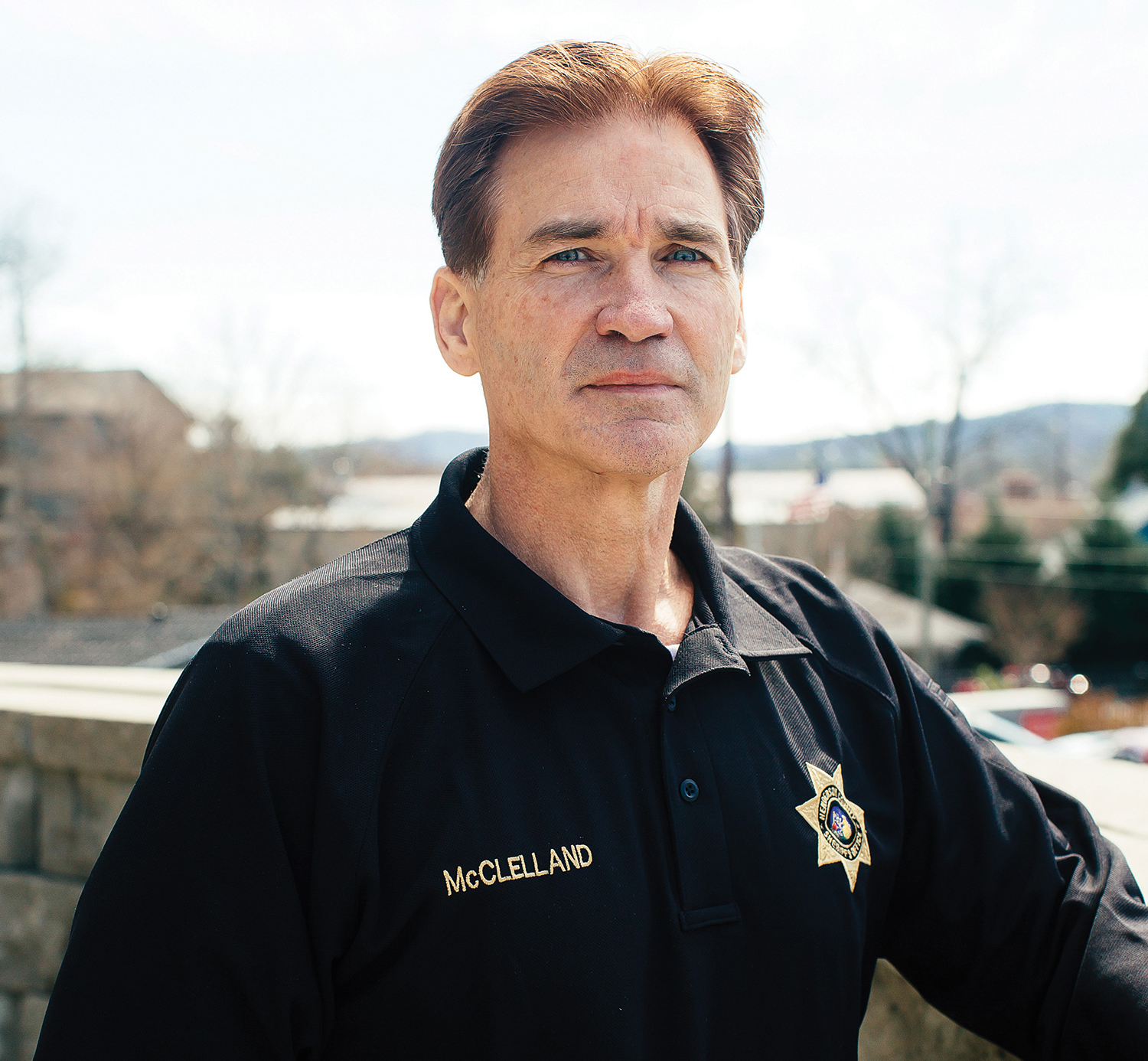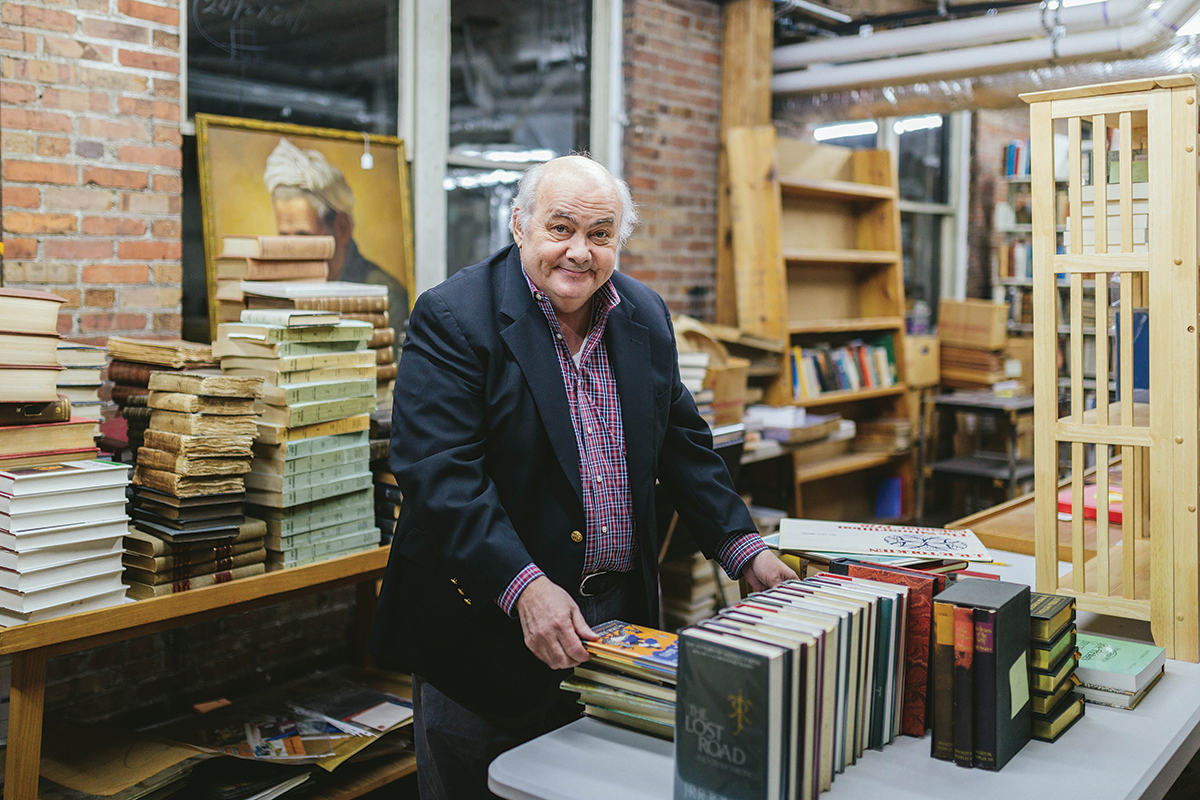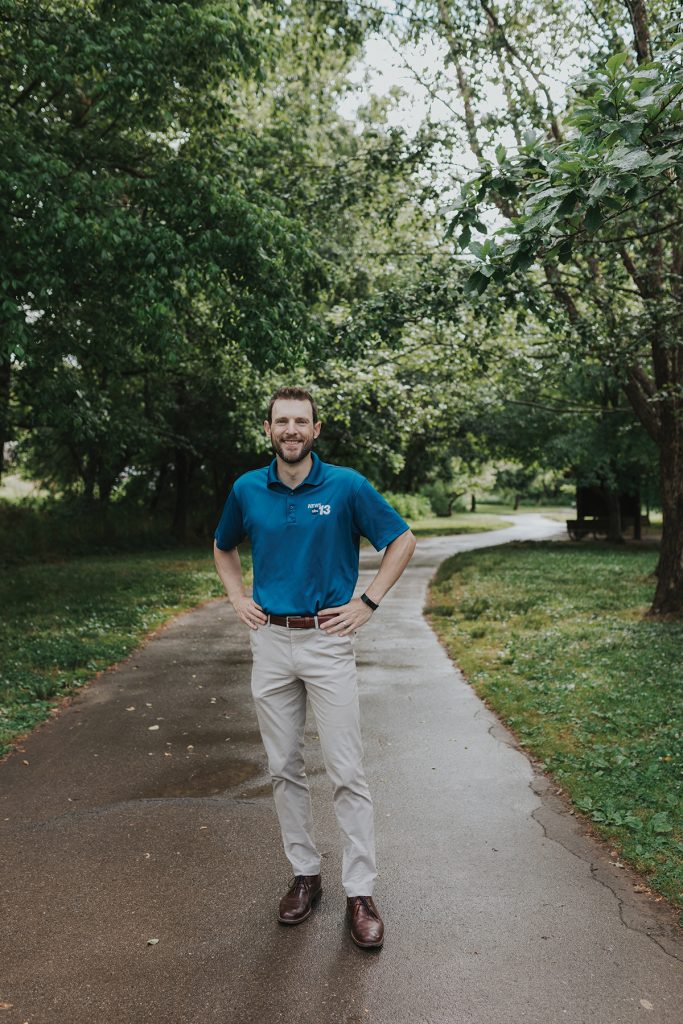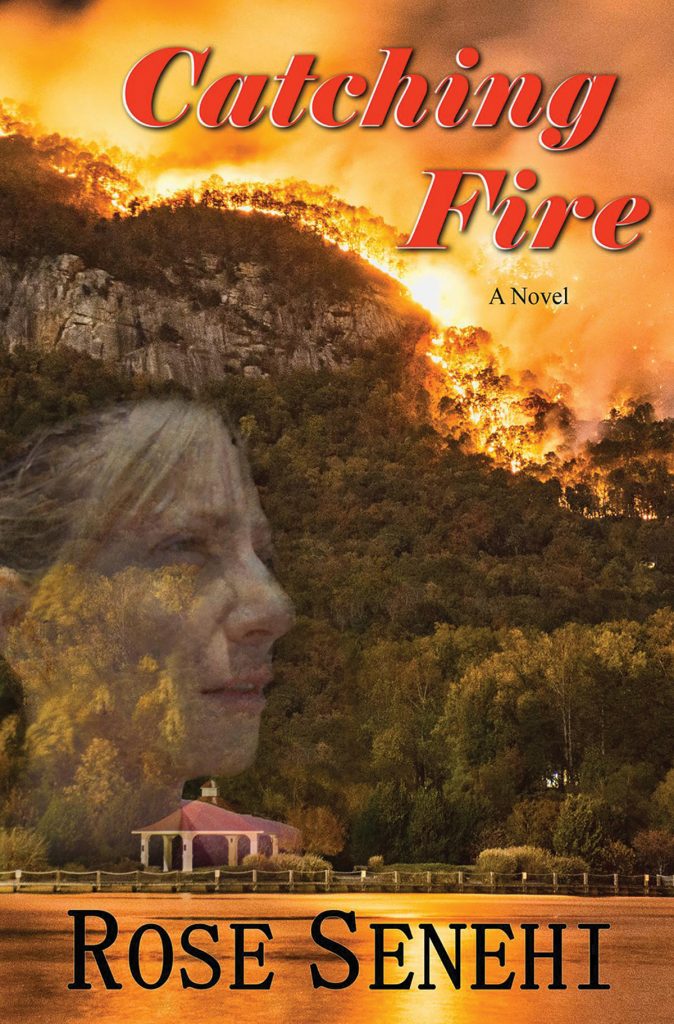
Criminal investigator Jim McClelland will lead a class at Blue Ridge Center for Lifelong Learning. Photo by Tim Robison
At some point in most TV crime shows, a serious character with “Forensics” printed on the back of his jacket walks onto the scene. This wunderkind looks around, goes to work, and solves the case with remarkable speed.
But that’s not how it actually happens. “On TV, the one piece of evidence they are looking for is right there,” says Jim McClelland, Lieutenant of Criminal Investigation at the Henderson County Sheriff’s Office. “When you go into a scene in real life, there’s everything, and you have to figure out what is evidence and what isn’t, because you can’t collect everything.”
Fictional crime scenes are usually presented “clean” to streamline the plot. If the clue has to be easily found, not much around it can be disturbed. “I’ll show some of the scenes I go into and what they [really] look like,” says McClelland.
He retired after a long career with the North Carolina State Bureau of Investigation, including a stint as the state coordinator overseeing all the crime-scene SBI workers in the state — but liked his field too much to leave it totally behind. Now he’s ready to share his experience with civilians, teaching a two-part “true forensics” class at the Blue Ridge Center for Lifelong Learning in Flat Rock.
It’s going to be good, predicts program chair Carol Reuter. She cites “the outstanding credentials of the presenter” and adds: “Jim is very enthusiastic about his subject.”
McClelland lives in Black Mountain and has worked many high-profile cases during his career, including a triple homicide. He’ll use a hands-on approach in the second phase of the two-part program, showing the class how fingerprints are used, how investigators collect trace evidence by using an alternate light source, and how certain chemicals can detect blood.
After he graduated from Troy University in Alabama, McClelland got a job at the Raleigh Police Department, where his brother worked. He then transitioned into the forensics lab and used his science degree. “I worked there in Raleigh for seven to eight years,” he says, “but I liked being outside more” — meaning on the scene.
From life in the lab to collecting evidence, and from doing suspect interviews to putting it all together for a jury, McClelland knows it all. He wasn’t ready to quit police work, and so true retirement just didn’t stick. “If you have a passion for something,” he says, “it’s easier to continue…”
The Blue Ridge Center for Lifelong Learning’s True Forensics class will be held 1-3pm on Wednesday, April 5, and Wednesday, April 12, in Room 122 of the Continuing Education Building. 180 West Campus Drive, Flat Rock. $40/general, $30/members. 828-694-1740.



